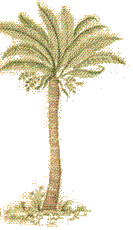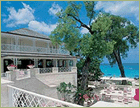
|
|
Many Bajans speak with a British accent, afternoon tea remains a tradition in throughout the island and cricket is still the national sport. Despite Barbados being called "Little England" in the Caribbean, many islanders are weighing the possibility of a divorce from the mother country. Although crime has slightly risen in recent years, Barbados is still a very safe destination. The difference between the haves and the have-nots doesn't cause the sometimes-violent clash here that it does on other islands, such as Jamaica. Bajans have a long history of welcoming foreign visitors, and that tradition of hospitality is still ingrained in most locals. History The original inhabitants of Barbados were Arawak Indians, who were driven off the island around 1200 AD by invading Carib Indians from Venezuela. The Caribs themselves abandoned Barbados around the time the first Europeans sailed into the region. Although the conditions of the Carib departure are unclear, some historians believe the Spanish might have landed on Barbados in the early 1500s and taken some of the Caribs as slaves, prompting the rest of the tribe to flee to neighboring islands. The First Europeans: Portuguese explorer Pedro a Campos stopped on Barbados in 1536 en route to Brazil. Though he had no interest in settling the island, it's thought that he introduced pigs to Barbados with the intention of using them as a food source on return voyages. It was Campos who named the island Los Barbados ('the bearded ones'), presumably after the island's fig trees, whose long, hanging aerial roots have a beard-like resemblance. Captain John Powell landed on Barbados in 1625 and claimed the uninhabited island for England. Two years later, his brother Captain Henry Powell landed with a party of 80 settlers and 10 slaves. The group established the island's first European settlement, Jamestown, on the western coast at what is now Holetown. More settlers followed in their wake and by the end of 1628 the colony's population had grown to 2000. Within a few years, the colonists had cleared much of the native forest and planted tobacco and cotton. They replanted their fields with sugar in the 1640s. To meet the labor demands of the new crop, planters, who had previously relied upon indentured servants, began to import large numbers of African slaves. Their estates, the first large sugar plantations in the Caribbean, proved immensely profitable, and by the mid-17th century the planters and merchants were thriving. The Charter of Barbados In 1639, island freeholders formed a Legislative Assembly, only the second such parliament established in a British colony (Bermuda was the first). Barbados was loyal to the Crown during Britain's civil wars and, following the beheading of King Charles I in 1649; Oliver Cromwell dispatched a force to establish his authority over Barbados. The invading fleet arrived in 1651 and by the following year Barbados had surrendered and signed the Articles of Capitulation, which formed the basis for the Charter of Barbados. The charter guaranteed government by a governor and a freely elected assembly, as well as freedom from taxation without local consent. When the British Crown was restored in 1660, this charter ironically provided Barbados with a greater measure of independence from the English monarchy than that of other British colonies. Bittersweet Emancipation The sugar industry continued to boom into the next century, even after abolition. Emancipation came in 1834 but failed to solve the poor living conditions of black islanders. Virtually all the island's arable land remained in the hands of large estates, and most former slaves had few options other than to stay on the plantations. Those who did leave often ended up in shanty towns. During the economic depression of the 1930s, unemployment shot upwards, living conditions deteriorated and street riots broke out. As a consequence, the British Colonial Welfare and Development Office were established, providing sizeable sums of money for Barbados and other Caribbean colonies. To counter growing political unrest, the British reluctantly gave black reformers a role in the political process. One of those reformers, Grantley Adams, became the first premier of Barbados a decade later and was eventually knighted by the queen. Barbados gained internal self-government in 1961 and became an independent nation five years later. As the sugar industry declined after WWII, tourism steadily increased its share of the island's economy. By the early 1990s, it was the largest sector, and the sugar industry was in receivership. Time Zone [back to top] Barbados falls
in the Atlantic Time Zone. When you are in Barbados: New York is
1 hour behind Climate [back to top] Located in the Tropics, Barbados is warm and sunny all year round with an average daytime high of 75F - 85F, while the nights are usually slightly cooler. The prevailing northeast trade winds blow steadily, although it is bright and sunny, it is never unbearably hot. In the winter from July through January, the rain usually comes in quick showers. However, May is during the dry season, which lasts from January to June. Attire [back to top] While Barbados is an easy-going island, there are dress codes, and because of 300 years of conservative British heritage, formal attire is still commonly seen throughout the island. Businessmen wear a shirt and tie and sometimes a jacket and women wear smart dresses. We suggest when visiting a bank or conducting any official business wearing pants and shirt, but above all --bring clothes for the tropics, including lightweight clothing that will keep you cool and protect you from the sun. In addition to beach and sportswear, the following attire is suggested for all program activities: Casual Attire Casual Evening
Attire Shopping [back to top] The heart and soul of shopping in Barbados is Broad Street in the capital city, Bridgetown. Lining the street are several large department stores and duty free shops. In addition to the specialty stores, there are several shopping malls offering a wide variety of products and services. For local handicrafts including black coral jewelry, straw bags, wall hangings, batik, paintings, rum cakes and much more, head to Pelican Village, on the outskirts of Bridgetown. Outside of Bridgetown are several smaller towns like Holetown in St. James and Speightstown in St. Peter that feature craft and gift shops. Chattel Village shopping areas are becoming increasingly popular in Barbados, these areas feature shops in traditional chattel houses and sell souvenirs, gift items, clothing and local arts and crafts. You can find these chattel villages at Holetown, St. James and St. Lawrence Gap, Christ Church. Electrical Current [back to top] The electrical current in Barbados is 110 volts, AC 50Hz. Telephones [back to top] Pay phones are readily available and cost 25 cents; wait for dial tone before inserting coins. The country code for Barbados +246, no city code is needed. To charge an overseas call on a major credit card, call tel. 800/744-2000. You can reach AT&T Direct by dialing tel. 800/872-2881. You can reach MCI at tel. 800/888-8000 and Sprint at tel. 800/534-0042. Cellular phones are available for rent on the island. Etiquette
and Tipping [back to top] Smoking [back to top] Smoking is strictly forbidden in stores, on public transit, and outside designated areas in restaurants, theaters, and sports venues. Customs [back to top] Each person may possess in their personal effects 1 liter of potable spirits or wine, 200 cigarettes (one carton), or 100 cigars, or 50 cigars and cigarettes not exceeding 230 grams in aggregate. All articles over this exemption are subject to the relevant duty and tax. The importation of certain articles are restricted or prohibited in order to protect the community, and to maintain animal and plant life. Prohibited articles such as illegal drugs and pornography will be seized at customs and persons may face penalties or prosecution. Restricted items may be released after inspection by the appropriate agency or detained until conditions of the restrictions are met. Receipts are issued for all articles detained by customs. All fruits, vegetables, plants, cuttings, seeds or unprocessed plant products must be declared to customs and presented for inspection by a Plant Quarantine Officer. Fresh fruits from certain countries are prohibited in order to prevent the spreading of pest and plant diseases. Weights and Measures [back to top] Barbados uses the metric system of weights and measures. Speed and distance are measured in kilometers; goods in kilograms and liters; temperature in Celsius (Centigrade). Currency [back to top] The Barbados Dollar is converted at the rate of $1.98 BDS to $1.00 USD. The BDS Dollar is fixed to the U.S. Dollar and does not fluctuate. American dollars are also widely accepted throughout the island. Currency Exchange [back to top] Exchange facilities are available for all incoming and outgoing flights at the international airport in Barbados. Changing foreign currency or travelers' checks can be done quickly and efficiently at most banks. Credit Cards [back to top] The most commonly accepted credit cards are American Express, Bankcard, Diners Club, MasterCard, Visa and their affiliates. Use may be restricted in smaller towns, country areas, and small retail shops. Banking and Business Hours [back to top] General office hours are 9:00 am - 5:00 pm, Monday - Friday. Most banks are open Monday to Thursday from 9am to 3pm, Friday from 9am to 1pm and 3pm to 5pm. The major banks of Barbados, all with ATMs, are found along Broad Street in Bridgetown, including branches of Barclays, the Barbados National Bank, and the Bank of Nova Scotia. Stamps are often available at front desks of hotels and motels and at selected retail outlets. Travelers' Checks [back to top] You should cash travelers' checks at banks or larger hotels, as it may be difficult elsewhere. Please note that some banks may charge a fee for cashing travelers' checks. Sun Protection [back to top] Enjoy outdoor activities such as sightseeing, boating, golfing without the risk of harmful exposure to the sun by using simple skin protection. Wear a broad-brimmed hat, a shirt with a collar and sleeves, and pH 15+ broad-spectrum, water-resistant sunscreen on exposed areas of skin. Try to avoid the sun during the middle of the day, between 10:00 am and 2:00 pm (11:00 am and 3:00 pm in daylight saving time) when the ultraviolet rays are at their strongest. Medications [back to top] Visitors are permitted to bring reasonable quantities of prescribed (non-narcotic) medications. All should be clearly labeled and identifiable. For large quantities of medication, it is advisable to bring a doctor's certificate to produce to Customs if necessary, and to a Barbadian doctor if required. All medication must be carried in personal hand luggage. Prescriptions may be filled at local pharmacies, however visitors should consult first with a local physician. Vaccinations [back to top] You do not need any other health certificate to enter Barbados. Visas [back to top] Visas are required for citizens from the People's Republic of China, Taiwan, Pakistan, non-Commonwealth African countries, and all South American countries except Argentina, Brazil and Venezuela. All visitors are officially required to be in possession of an onward or return ticket. Should you require a visa, please contact your embassy immediately. Cadence Travel Headquarters will be happy to provide a letter stating your reason for travel, if required by your embassy. |
|||||||


